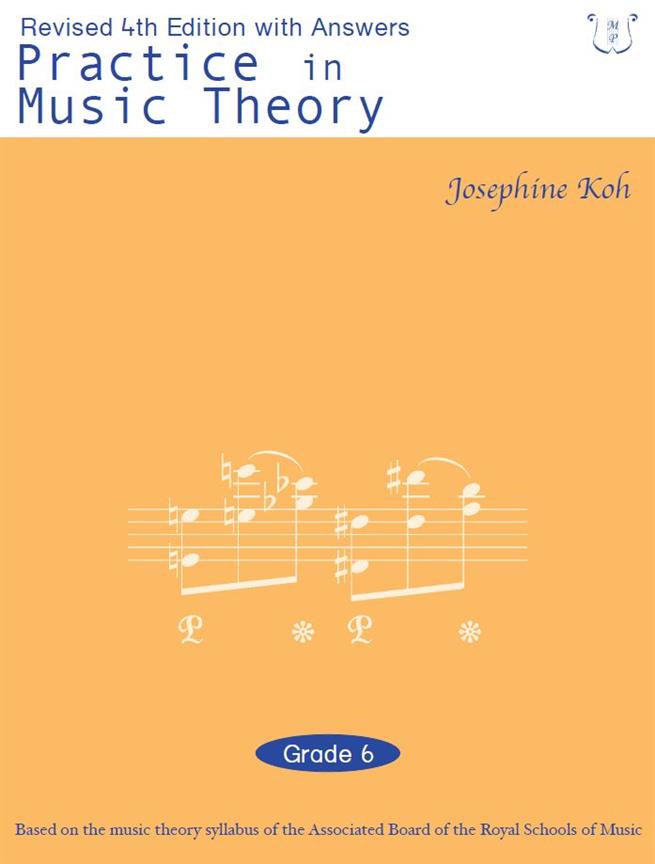
This revised 4th edition of Practice in Music Theory Grade 6 comes complete with detachable Model Answers! The success of its previous editions for the past two decades has prompted the need for more definitive solutions. Based on the ABRSM theory examination syllabus, it is the first of three comprehensive coursebooks leading to Grade 8 and beyond. Students are guided to achieve a high theoretical standard, with competent knowledge in harmony, counterpoint, melodic writing and score analysis. The J Koh’s instructional approach is academic and systematic; yet musically conceived with graphical layouts and selective examples. There are 2 parts to this coursebook. Part I – Harmony The principles of harmony are introduced here: 4-part writing, 2-part counterpoint, concepts of traditional chord progression, use of inversions, principles of voice-leading, and the use of non-harmony notes. Harmonic guidelines and rules are clearly explained with relevant examples. Exercises are progressively structured to ensure a strong grasp of the theoretical concepts. Part II – Melodic Composition and Analysis Meloic composition is taught through an analytical approach. The concepts of phrasing, use of motifs, modulations and melodic contour are illustrated with authentic extracts. By taking students through the works of the great masters, their technical skills are sharpened, enhanced with useful tools for the creative compositional process. Skills in score analysis involve the acquisition of sound musical knowledge - the study of forms, genres, history of western music that spans 4 centuries, along with the composers’ works and styles. Appendices II and III provide guidance for basic research needed at this level. The essential and highly recommended reference texts are: Musical Forms and Terms and Understanding Orchestration, The Orchestra and Its Instruments.



